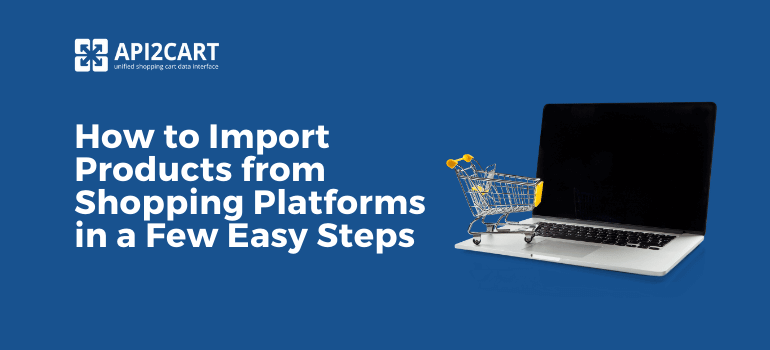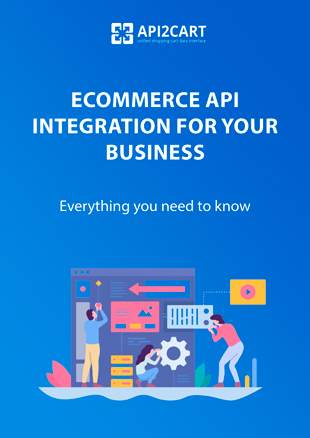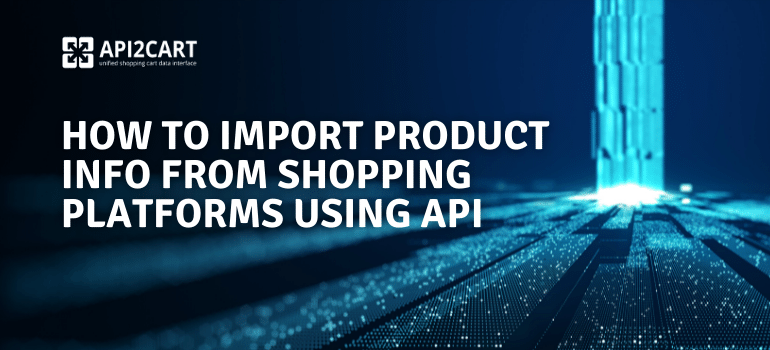
We live in an age where vendors of eCommerce apps, such as warehouse management software providers, inventory tracking companies, or product information management solutions, want to grow and expand their companies as quickly as possible.
Experts are seeing a surge in new SaaS app providers hitting the market with the growing number of online shoppers triggered by the worldwide pandemic-related lockdown. It means that the competition in the SaaS solutions market will continue to grow up.
One of the simplest ways software providers can grow their business and overtake the competition is by integrating their solutions with numerous eCommerce platforms. It allows them to increase the number of their new clients by working with those e-retailers who build their stores on various platforms. Also, the connection to multiple eCommerce platforms enables software providers to access necessary e-stores' data like product details.
If in the past, most online sellers would choose Shopify, Magento, Amazon, eBay, or PrestaShop, because these were the biggest platforms out there. However, with the expansion of the eCommerce market and online sales growth, more and more retailers are now choosing less popular platforms such as Ecwid, Zen Cart, Shopware, CS-Cart, 3dcart, etc.
In this article, we are going to explore the importance of developing integration with different eCommerce platforms. Also, we will show you how you can import products from multiple sales channels easily.
Why Do B2B eCommerce Software Require Integration with Shopping Platforms?
No matter the type of industry you’re in, it’s imperative to integrate with various shopping platforms to provide additional functionalities to your end customers. A stable integration allows you to seamlessly import products from e-stores and automate a wide range of processes related to online retailers' business operations.
Let’s take a closer look at the main types of B2B SaaS eCommerce software companies and discover why each of them requires integration with shopping platforms.
Multichannel software
Multichannel software providers help eCommerce business owners better organize their processes and streamline their operations across multiple platforms. The e-store owners need to gain the peace of mind that the inventory, shipment, order distribution, and product listings are synchronized over all the channels.
Thus, multichannel software should integrate with shopping platforms to provide their functions to the clients and access and import product data, orders, stocks, shipping info, inventory, etc., from online stores.
Marketing automation software
Businesses that offer marketing automation solutions should integrate their systems with all major shopping platforms to provide advanced email marketing services to their customers and gain precious insights. Additionally, such integration enables them to import product data, orders, customer info from e-stores to segment users and send emails with special offers for specific categories of site visitors.
Inventory management systems
Any inventory management software provider that wants to scale up their business needs to perform a viable integration with eCommerce platforms in order to gain access to product data. This allows them to design up-to-date reports and track the inventory situation in real-time, thus preventing order failure and loss of products.
PIM
PIM eCommerce integration allows such solutions to provide the functionality related to syncing product data, creating product catalogs, providing accurate analytics, etc.
Chatbots
Chatbot solutions can provide the necessary functionality to their customers only by accessing e-stores’ data about products and orders. The ability to manage the online store data depends on the quality of the integration between chatbot software and shopping platforms used by retailers.
Dropshipping automation software
SaaS companies offering dropshipping automation services should integrate their businesses with shopping platforms to provide their customers with the possibility to add products to all of their dropshipping stores.
POS solutions
POS service providers need to integrate with eCommerce platforms and manage product data to allow their customers to sync data uploads, sync inventory, and make top-tier reports.
How to Import Products from eCommerce Platforms Easily
There is no doubt that investing in a high-quality integration solution is the best thing you can do for your SaaS business in 2021. One of the easiest ways to develop shopping platform integration is to use API2Cart. Our solution provides a unified API that allows you to connect with 40+ eCommerce platforms at once.
API2cart has a wide range of API methods that enable you to work, import product data from e-stores, systematically update orders, sync inventory across various sales channels, create and update listings, and many more.
To import products from shopping platform, you will need to use the following API2Cart API methods:
- product.list – this method allows you to get lists of products from the store. Response example of this method looks like this:
- product.info – this method allows you to retrieve info about products connected with product names, attributes, price, description, category.
{
"return_code":0,
"return_message":"",
"result":{
"products_count":5,
"product":[
{
"id":"69",
"name":"egestas",
"price":229.13
},
{
"id":"66",
"name":"arcu et",
"price":982.5
},
{
"id":"67",
"name":"egestas",
"price":1147.2
},
{
"id":"68",
"name":"tincidunt",
"price":182.3
},
{
"id":"58",
"name":"aliquet nec",
"price":403.42
}
]
}
}
What Other Types of Data API2Cart Helps to Import from Shopping
API2Cart is quite flexible. It allows developing a multitude of shopping platform integrations fast and access all the needed data from them. In addition to product data, API2Cart enables you to work with numerous other types of data related to courier info, customer details, order info, etc. API2Cart offers you over 100 API methods to manage store data.
You only need to integrate once with API2Cart. After that, you will get access to the databases of more than 40 supported eCommerce platforms and marketplaces.
In the long run, using API2Cart allows you to save 4-8 weeks and over $10k on just a single integration with a shopping platform. If we’re considering 10 or 20 integrations, that’s a vast amount of money you can invest in something else.
At API2Cart, we work with a wide range of SaaS business providers, from tens of niches, such as mobile commerce app development, PIM, chatbots, ERP, POS, warehouse management, product catalogs.
You can try API2Cart for 30-days for free by registering your account right now. If you have any questions, you can contact API2Cart managers by phone, email, or online chat. We work for you 24/7.



